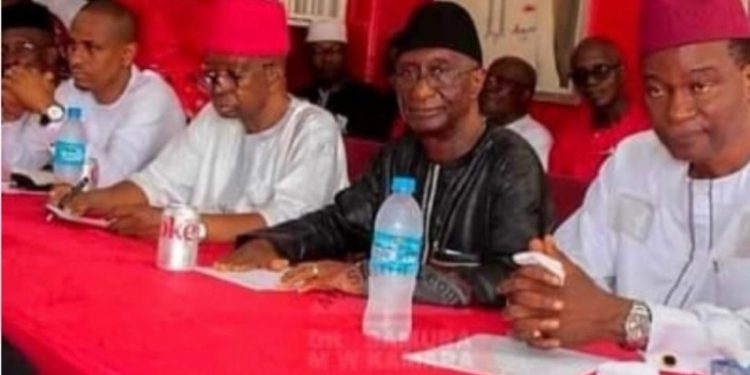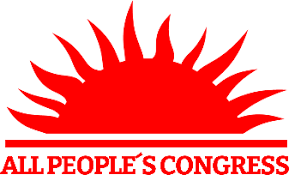By Mackie M. Jalloh
The once-dominant All People’s Congress (APC) is now facing a period of unprecedented internal strife, with deepening leadership disputes threatening to fracture the party beyond repair. Once a symbol of political stability in Sierra Leone, the APC is now mired in factionalism, as members struggle to chart the party’s future in the lead-up to the next general elections.
What started as a low rumble of disagreement within the party ranks has now erupted into full-scale infighting. The most visible signs of the internal struggle are the conflicting visions that have surfaced about the APC’s direction. Senior party members, who once stood united, are now split into bitterly opposed factions. At the core of this conflict are disagreements about who should lead the party into the next election, with accusations of power grabs flying from both sides.
In recent months, APC insiders have expressed frustration over what they describe as a lack of clear direction, with some members calling for new leadership to reinvigorate the party, while others advocate for maintaining the status quo. A reformist wing of the party is pushing for sweeping changes, including the appointment of fresh faces in leadership positions and modernizing the party’s approach to governance. They argue that the APC must evolve if it hopes to win back voters disillusioned by internal chaos and the ruling Sierra Leone People’s Party (SLPP).
However, a more traditionalist faction is resistant to such reforms, calling instead for a return to the party’s roots. They believe that the APC’s long-established leadership structures must be preserved to ensure stability and argue that reformist efforts risk diluting the party’s core values.
These divergent views have only exacerbated the party’s internal conflict, and the tension has spilled into the public sphere. Heated debates over the party’s future are now playing out in the media, and members are openly challenging each other’s authority. What was once confined to closed-door meetings has now become a public spectacle, raising serious concerns among APC supporters about the party’s ability to present a united front in upcoming elections.
The timing of this discord could not be worse for the APC. With general elections on the horizon, the party is scrambling to maintain its credibility. Political analysts warn that if the APC cannot resolve its internal disputes quickly, it risks undermining its electoral chances. The party’s traditional voter base is already showing signs of unease, as supporters grow increasingly frustrated with the lack of cohesion at the top.
More broadly, the APC’s internal turmoil raises important questions about Sierra Leone’s political landscape. The absence of a strong and unified opposition could allow the SLPP to consolidate power, which would have far-reaching implications for Sierra Leone’s democratic processes. The APC’s leadership crisis is not just a problem for the party—it’s a challenge for the country as a whole, as it struggles to maintain a healthy and competitive political environment.
As the APC navigates this turbulent period, many wonder whether the party can heal its divisions and emerge stronger. The stakes could not be higher. If the APC fails to resolve its internal conflict, it risks not only losing the next election but also fading into political irrelevance. Only time will tell if the party can reconcile its opposing factions or if it will continue to fracture, leaving Sierra Leone’s political future in a precarious state.













